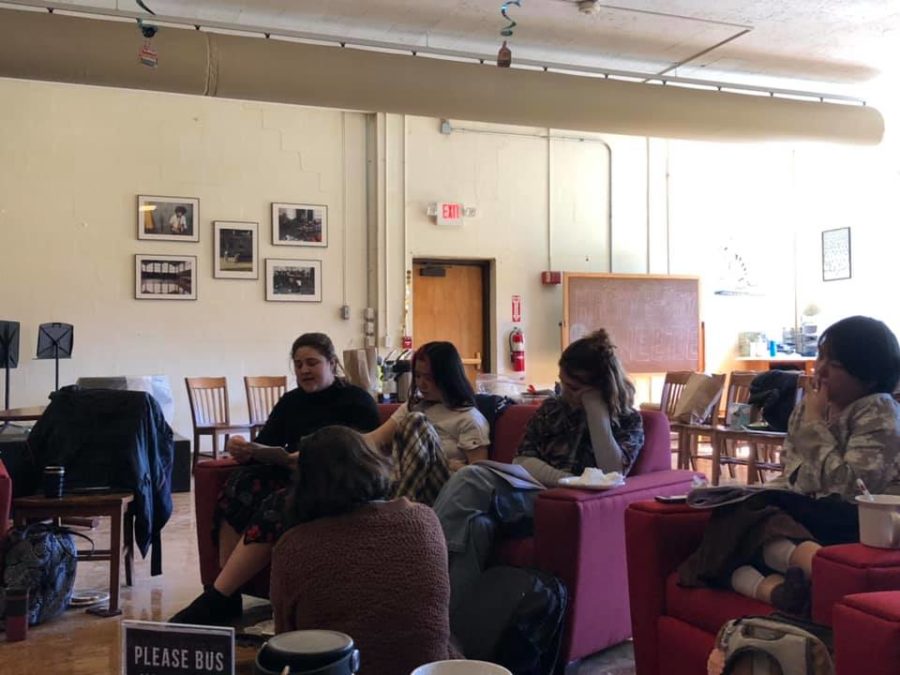Oberlin Doula Collective Trains Student Advocates
Oberlin Doula Collective has been operating since 2017, providing necessary support and community to those undergoing abortions.
As Oberlin students, we are constantly striving to deepen the ways we care for our community — both at school and beyond. In 2017, this mindset led to the creation of the Oberlin Doula Collective: a group of trained students who provide support for Oberlin community members who are receiving abortions.
When I completed ODC’s training this spring, I learned new ways to support and advocate for others. A doula is a trained support person who provides emotional and physical care, as well as information before, during, and after a health experience. An abortion doula specifically supports individuals receiving an abortion. Doulas might hold someone’s hand during a procedure, provide emotional support, or advocate for an individual in a medical setting — as well as offering other essential services.
“It’s really, really important for people going through any type of abortion or pregnancy loss to know that there’s a resource for them and that they’re not going to be judged or shamed,” said Elana Rosenberg, OC ’19, founder of ODC.
Rosenberg started ODC in 2017, her third year at Oberlin, after completing a training with SPIRAL Collective, a Minneapolis-based reproductive justice care collective. SPIRAL centers chronically ill, disabled, queer, transgender, and BIPOC folks. Rosenberg wanted to use her connection with the collective to bring this work to Oberlin.
“At Oberlin, we had the roots with [SPIRAL] and so they were amazing and agreed to mentor me and others in creating a space modeled after theirs in Oberlin to do doula work,” she said.
Rosenberg’s goal was to have ODC serve as a truly supportive space.
“Having it be a space that centers transness, queerness, and anti-racism can make or break someone’s experience of what their abortion feels like and how much they feel like they can advocate for themselves or feel like they have someone advocating for them,” Rosenberg said.
To become a doula, ODC requires the completion of a thorough training process. College second-year Ally Chase completed the training this spring.
“The topics of the training included a wide variety of information about laws in Ohio that were restricting abortion access, in addition to getting us familiar [with] what practicing as a doula would look like and different responsibilities of a doula,” Chase said.
An abortion doula must maintain a robust, supportive mindset for whatever a client might be going through. College third-year Aniella Day is a leadership circle member for ODC and felt empowered by the knowledge and skills she has learned as a doula.
“This work really transfers to a lot of other spaces,” Day said. “It’s not just about being there for somebody who’s getting an abortion; it can transfer to their friends and being a good active listener and being a better person in general.”
Once trained and capable of providing care, ODC doulas work around Lorain County to provide a variety of services.
“I think it’s important to have something like ODC at Oberlin because a lot of the people who access ODC are probably not affiliated directly with the College,” Chase said. “I like that ODC is a way for students to step outside of their immediate bubble and respond to a need in the community that might otherwise not get addressed.”
Fulfilling a need in the community was at the forefront of Rosenberg’s goal when founding ODC.
“There isn’t a lot of support and resources for people getting abortions in Lorain County and it was nice to be able to fill something that was clearly a gap in services,” Rosenberg said. “Oberlin was a community that I loved and poured a lot of my heart and energy into, and I wanted it to have that. I wanted the people around me to have that when they were going through various pregnancy things and I wanted Lorain County to have it.”
While ODC is not affiliated with the College and is not a recognized or chartered student organization, ODC works with Oberlin students to contribute positively to the community, providing pregnant people with crucial care and attention during a highly sensitive time and medical procedure.
“The type of community that I found at ODC is one where people want to use their access to knowledge and wealth of institutional access to provide a service for people in the community,” Chase said.
I signed up for training this spring, simply hoping to volunteer in order to provide emotional support for what I believe should be a civil right. What I found in ODC was so much more. I learned about full-spectrum reproductive justice and care, found a like-minded community, and have received an invaluable emotional and informational education from ODC.
ODC hopes to offer an ExCo this fall in addition to ODC’s yearly spring training. ODC provides information and referrals, transportation assistance to and from abortion-related appointments, doula support kits with supplies to help an individual through a medication abortion, and support before, during, and after a surgical or medical abortion. People can request support through a form on ODC’s webpage.










